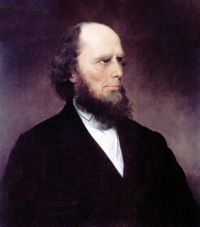A commenter named Dan McGhee at Denny Burk’s blog, coming from The Convergence, made a good insight, which I have noticed myself among pastors my age in their commentary on this whole ordeal (read below). I’m in the minority on the position I’ve taken with others my age in case you’re wondering, at least it seems to be the case. As Phil Johnson pointed out in a series of predictions he made, from a previous post, Elephant Room 2, with the invitation of T.D. Jakes was the first real test of the validity, strength and sustainability of the Young, Restless, Reformed movement in the face of doctrinal error. It appears to me it has failed primarily by succumbing to the lure of postmodernism in discourse. This is very unfortunate and I pray it can be changed. Unfortunately, if we learn anything from church history, it’s that seemingly innocuous decisions, even when done with well-meaning intentions (as I believe they were), have very serious consequences and implications [bold, italicized font mine]:
Denny, the damage that ER2 has done in the overall body of Christ is going to be felt in the years to come. Already I am hearing of conversations with younger, impressionable, college-aged men, who are headed for ministry and currently in Bible college studying for ministry, who are now wondering “What’s the big deal? TD Jakes affirmed the trinity.”
For the life of me I can’t understand how otherwise solid men can’t see how this is going to lead to Jakes’ prosperity-theology being main-streamed into the evangelical church in the years to come. Not to mention, the idea that oneness theology and trinitarian theology “aren’t really that far apart because it’s only a matter of semantics” is now firmly planted into the soil of evangelicalism. Make no mistake, this thinking will sprout, grow, and spread in the days to come.
All of this is the result of men being ENAMORED with mega-church pastor successes (numerically), which of course, is now being defined as “fruitfulness.” Obedience to 2 John 7-10 could have spared the church of Jesus Christ must damage that will no doubt result, and already is.


 After the election, in my own thinking, I have been working through how we as believers are to approach the preaching of the Gospel and politics. Particularly from the Reformed camp, I keep seeing two answers to this (broadly speaking, knowing there are probably more).
After the election, in my own thinking, I have been working through how we as believers are to approach the preaching of the Gospel and politics. Particularly from the Reformed camp, I keep seeing two answers to this (broadly speaking, knowing there are probably more).